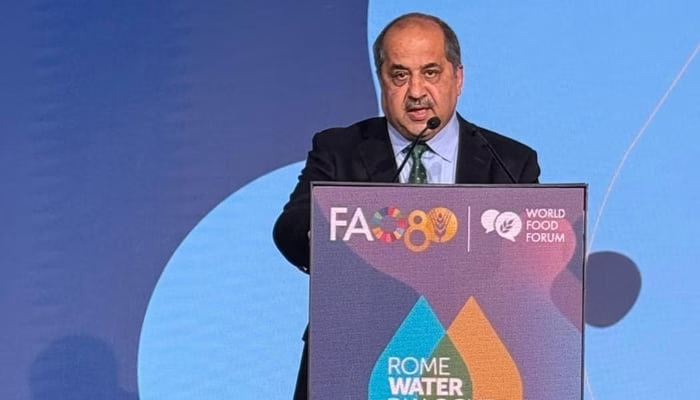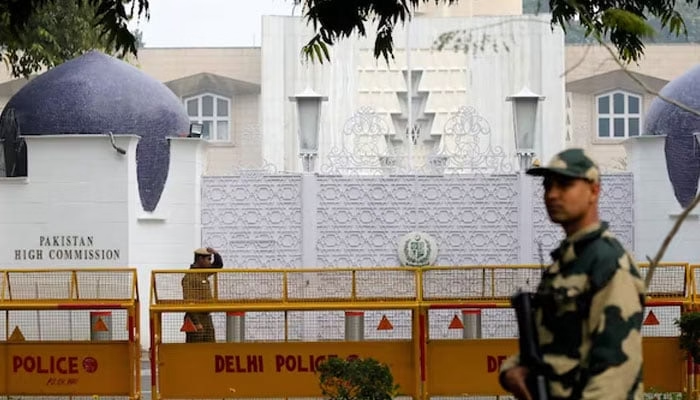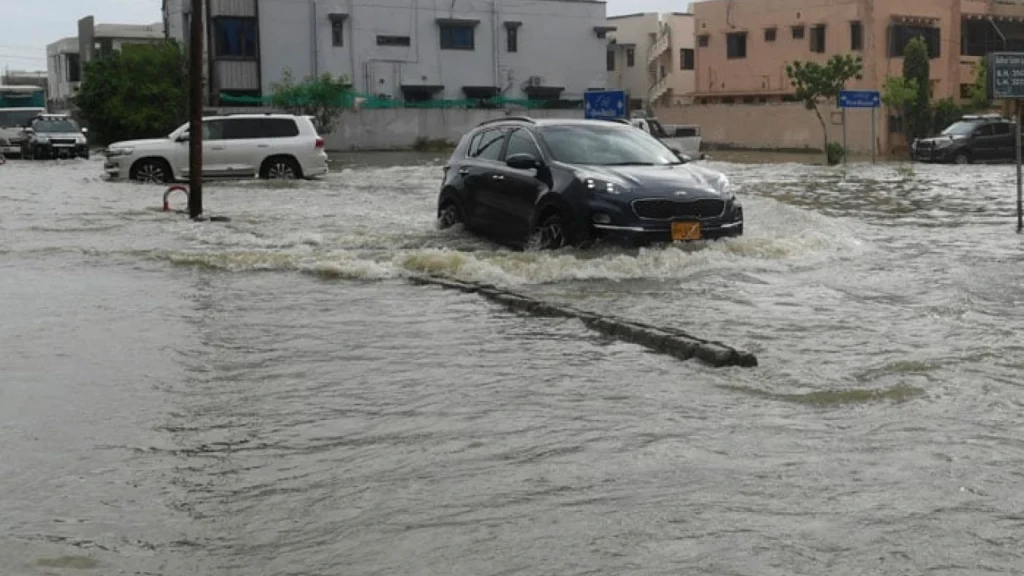Syed Tauqir Hussain Shah, Adviser to the Prime Minister of Pakistan, has issued a strong warning against the unilateral manipulation of transboundary water flows, stressing that such actions violate international norms and pose a threat to sustainable development. Speaking at the Rome Water Dialogue organized by the Food and Agriculture Organisation (FAO) in Rome, Italy, Dr. Shah said that any attempt to unilaterally alter shared water systems or weaponize water access is not only dangerous but also contrary to global principles of cooperation and peace.
Pakistan Raises Concerns Over Indus Waters Treaty Violations
Representing Pakistan at the global forum attended by delegates from hundreds of countries, development experts, and civil society leaders, Dr. Shah raised serious concerns over India’s handling of the Indus Waters Treaty (IWT). He emphasized that the Indus Waters Treaty has long stood as a model of water-sharing cooperation, even during times of political tension between Pakistan and India. However, India’s recent unilateral moves to suspend treaty-level engagements have raised alarm over the future of this critical framework.
Dr. Shah warned that these unilateral actions could undermine decades of regional cooperation and stability. The Indus Waters Treaty remains one of the most resilient water-sharing agreements in the world, he said. India’s recent conduct risks destabilizing not only the treaty itself but also regional peace and water security.
Importance of Upholding Treaty Integrity and Water Justice
Dr. Shah urged the international community to take serious note of India’s actions and their potential impact on transboundary water governance. He called upon all stakeholders, including international institutions and regional partners, to reaffirm their commitment to treaty integrity, river basin cooperation, and water justice — particularly for the 250 million Pakistanis who rely on the Indus Basin for their livelihoods and survival.
He stressed that protecting transboundary water flows is not just a matter of diplomacy but one of human rights and survival. Water is not about politics; it is about people, dignity, and life itself,
Sustainable Development Goals and the Global Water Crisis
Highlighting the connection between water security and global development, Dr. Shah underscored that achieving the Sustainable Development Goals (SDGs), especially SDG 6 (Clean Water and Sanitation) and SDG 2 (Zero Hunger), would remain impossible without effectively addressing the growing water scarcity crisis. He pointed out that the global water crisis has become an existential challenge, demanding collective global responsibility and cooperation.
He further urged world leaders to treat water governance as a global priority and warned that continued inaction would jeopardize food security, energy stability, and regional peace. “Without sustainable water management, the goals of clean water and zero hunger will remain out of reach,”he stated.
Call for International Stewardship and Accountability
Dr. Shah called on the international community to act as stewards of peace and justice by ensuring that transboundary water treaties remain sacrosanct. He warned against allowing political agendas to disrupt long-standing agreements that safeguard millions of lives. He stated, No nation has the moral or legal right to hold another’s water security hostage. The international community must ensure that transboundary cooperation is based on fairness, transparency, and shared responsibility.
He reaffirmed Pakistan’s commitment to regional peace, dialogue, and balanced diplomacy, while also emphasizing that sustainable water management must be treated as a global priority rather than a bilateral dispute.
The adviser’s remarks at the Rome Water Dialogue serve as a powerful reminder of the urgent need for global cooperation in managing shared water resources. As climate change intensifies and population pressures rise, the equitable management of transboundary water flows has become a defining challenge for the 21st century.
Dr. Shah’s strong stance reinforces Pakistan’s call for responsible international behavior and the preservation of treaties that ensure peace and sustainability. His message echoed a growing global consensus — that safeguarding shared water resources is not just a technical issue but a moral imperative for future generations.



